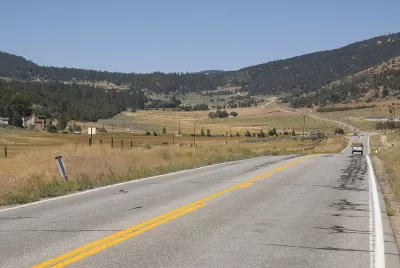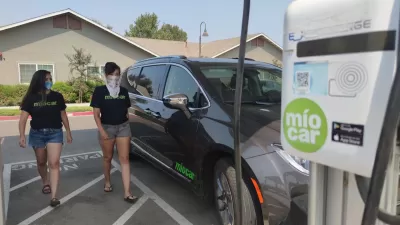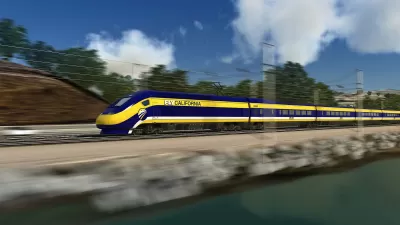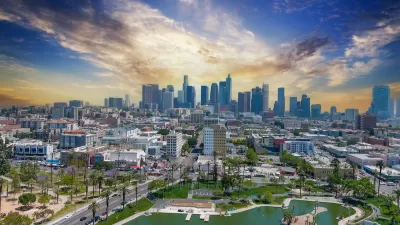California residents throughout the Central Valley struggle with inadequate transportation. Shuttle and ride-share programs are filling in the gaps.

Rural residents in California’s Central Valley have long lacked access to adequate transportation, both for local travel and to reach services in larger cities in the region. Small communities in the Merced region, such as Cantua Creek, Delhi, and Planada, have started small-scale shuttle services to address the need, report Ryan Lillis and Robert Rodriguez:
And in Huron, a small city an hour southwest of Fresno surrounded by fields of almonds, cotton and lettuce, reliable and affordable transportation has been an everyday problem for decades. Those without cars have used an informal ride-sharing system operated by locals known as raiteros. With the help of a state grant worth $519,000, the mayor launched a nonprofit ride share service powered by a small fleet of electric vehicles.
While Huron has some bus service, residents traveling to cities like Bakersfield and Fresno face lengthy, time-consuming trips. The city’s program, now based on donations, is a much-needed transportation option. “The idea is to provide the residents of Huron with access to zero-emission vehicles that can shuttle them to doctor’s appointments, job interviews, or grocery stores,” according to Lillis and Rodriguez.
They say plans to address transportation issues emerged from other efforts to help low-income communities of color in the Central Valley address environmental issues, including air pollution and dirty drinking water.
FULL STORY: Rural communities find inventive ways to get residents on the road

Planetizen Federal Action Tracker
A weekly monitor of how Trump’s orders and actions are impacting planners and planning in America.

Map: Where Senate Republicans Want to Sell Your Public Lands
For public land advocates, the Senate Republicans’ proposal to sell millions of acres of public land in the West is “the biggest fight of their careers.”

Restaurant Patios Were a Pandemic Win — Why Were They so Hard to Keep?
Social distancing requirements and changes in travel patterns prompted cities to pilot new uses for street and sidewalk space. Then it got complicated.

Platform Pilsner: Vancouver Transit Agency Releases... a Beer?
TransLink will receive a portion of every sale of the four-pack.

Toronto Weighs Cheaper Transit, Parking Hikes for Major Events
Special event rates would take effect during large festivals, sports games and concerts to ‘discourage driving, manage congestion and free up space for transit.”

Berlin to Consider Car-Free Zone Larger Than Manhattan
The area bound by the 22-mile Ringbahn would still allow 12 uses of a private automobile per year per person, and several other exemptions.
Urban Design for Planners 1: Software Tools
This six-course series explores essential urban design concepts using open source software and equips planners with the tools they need to participate fully in the urban design process.
Planning for Universal Design
Learn the tools for implementing Universal Design in planning regulations.
Heyer Gruel & Associates PA
JM Goldson LLC
Custer County Colorado
City of Camden Redevelopment Agency
City of Astoria
Transportation Research & Education Center (TREC) at Portland State University
Camden Redevelopment Agency
City of Claremont
Municipality of Princeton (NJ)





























